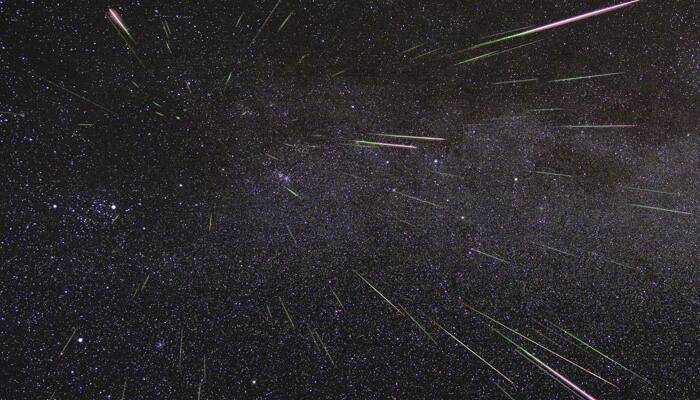New Delhi: The Perseid meteor shower, a cosmic display of “shooting stars” that light up the night sky and one of the most spectacular celestial shows, is all set to enthrall skygazers next week.
Known for it’s fast and bright meteors, the annual Perseid meteor shower is anticipated to be one of the best potential meteor viewing opportunities this year.
Perseid meteor shower peak dates
The Perseids show up every year between July 17 and August 24 when Earth ventures through trails of debris left behind by an ancient comet. This year, the shower will reach its peak on August 11-12.
According to NASA meteor expert Bill Cooke, the Perseid Meteor Shower 2016 will feature an "outburst" which could reach as high as 200 in an hour as compared to the usual count that goes from 60 to 100 meteors in an hour.
“Forecasters are predicting a Perseid outburst this year with double normal rates on the night of August 11-12,” said Bill Cooke with NASA’s Meteoroid Environments Office in Huntsville, Alabama. “Under perfect conditions, rates could soar to 200 meteors per hour.”
An outburst is a meteor shower with more meteors than usual. The last Perseid outburst occurred in 2009.
Where, when, how to see the Perseids?
The Perseids can be seen across the Northern Hemisphere. And the best way to view the Perseids is between midnight and dawn (from 1 a.m. to 5 a.m.). Choose a dark place away from stray lights, and give yourself and your eyes about 45 minutes to adjust to the dark. Lie on your back and look straight up. Increased activity may also be seen on August 12-13.
In case, you're experiencing cloudy or light-polluted skies, don't lose your heart for a live broadcast of the Perseid meteor shower will be available via Ustream overnight on August 11-12 and August 12-13, beginning at 10 p.m. EDT.
More about the Perseids
Perseid meteors travel at the blistering speed of 132,000 miles per hour (59 kilometers per second) - that’s 500 times faster than the fastest car in the world. However, the Perseids pose no danger to Earth as most burn up 50 miles above our planet. But an outburst could mean trouble for spacecraft, says NASA.
















